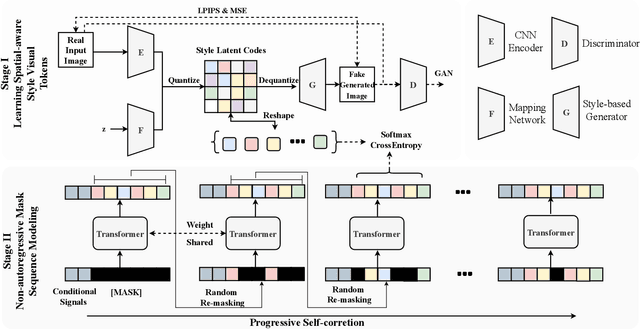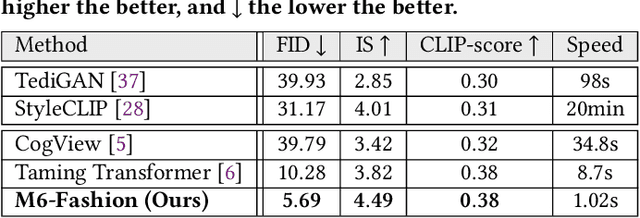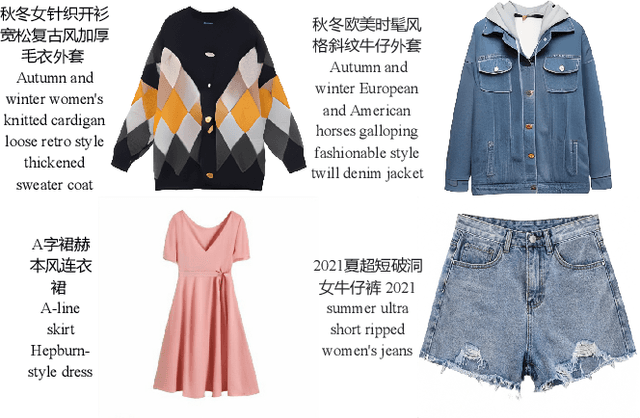M6-Fashion: High-Fidelity Multi-modal Image Generation and Editing
Paper and Code
May 24, 2022



The fashion industry has diverse applications in multi-modal image generation and editing. It aims to create a desired high-fidelity image with the multi-modal conditional signal as guidance. Most existing methods learn different condition guidance controls by introducing extra models or ignoring the style prior knowledge, which is difficult to handle multiple signal combinations and faces a low-fidelity problem. In this paper, we adapt both style prior knowledge and flexibility of multi-modal control into one unified two-stage framework, M6-Fashion, focusing on the practical AI-aided Fashion design. It decouples style codes in both spatial and semantic dimensions to guarantee high-fidelity image generation in the first stage. M6-Fashion utilizes self-correction for the non-autoregressive generation to improve inference speed, enhance holistic consistency, and support various signal controls. Extensive experiments on a large-scale clothing dataset M2C-Fashion demonstrate superior performances on various image generation and editing tasks. M6-Fashion model serves as a highly potential AI designer for the fashion industry.
 Add to Chrome
Add to Chrome Add to Firefox
Add to Firefox Add to Edge
Add to Edge